If only socializing were as easy for people. Your socialized dog sniffs a butt and reads the overall demeanor of the visiting dog on a regular basis.
How to effectively socialize a puppy or adult dog takes time. It’s extremely important to introduce your canine to new experiences in unfamiliar situations at a young age. Puppies are inquisitive and want to meet other dogs.
Socialized dogs are confident, emotionally healthy, and responsive. Dog owners who encourage socialization also benefit. However, there are a few common dos and don’ts.
What is Dog Socialization?
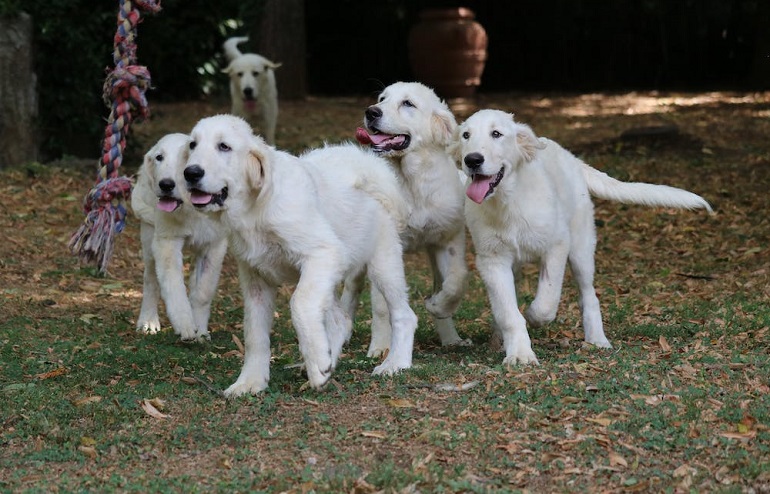
Dogs are pack animals that thrive in a hierarchy. Every dog knows its place. Or is willing to learn. Puppy socialization is a healthy part of raising a well-adjusted adult dog. Some dog breeds adjust better in small groups. They need positive interaction with their canine family.
In short, socialization is skill dogs develop through touch, scent, sound, and sight experience. This growth occurs at the dog park or in a controlled environment. It teaches them a positive association by introducing them to proper socialization.
Tip: Start your puppy early. However, ensure the vaccinations are updated. Puppies have vulnerable immune systems. Ask your vet.
How to Socialize Your Dog with Humans
Meeting new humans is easy for puppies. Although humans speak in gibberish, puppies love sinking their teeth into soft hands, shoes, and slacks. Positive interactions at a dog park are ideal for adult dogs too.
Daily Walks Are Key
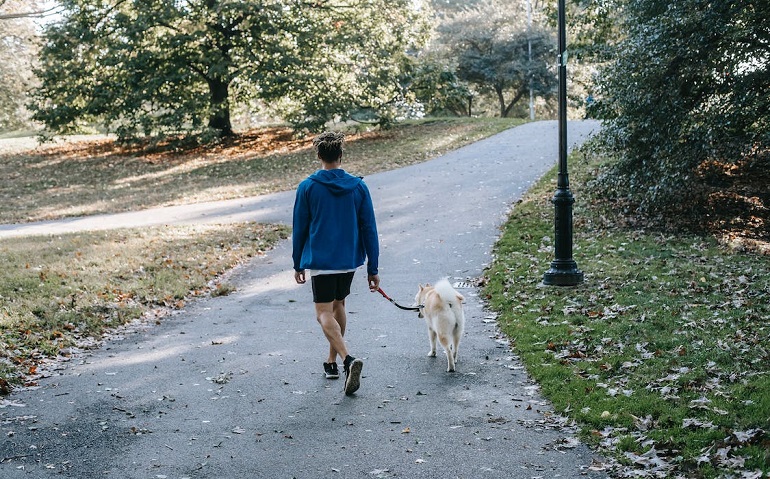
Daily walks serve as a multipurpose. Exercising is healthy for you and your pet dog. It teaches a puppy certain behavior expectations and reinforces other important dog socialization aspects.
Not all forays to the park are going to be smooth experiences. If an unpleasant incident occurs, stay calm and go back to your house. Your dog is going to pick up on your behavior signals. If the puppy interacts badly with older dogs, don’t indulge them. Make sure they’re not injured, but don’t make a fuss.
If your puppy behaves well and practices manners, reward them with treats and positive reinforcement phrases. Also, expand their vocabulary repertoire with words like walk, sit, come, pee, poop, and wait.
Be Timely
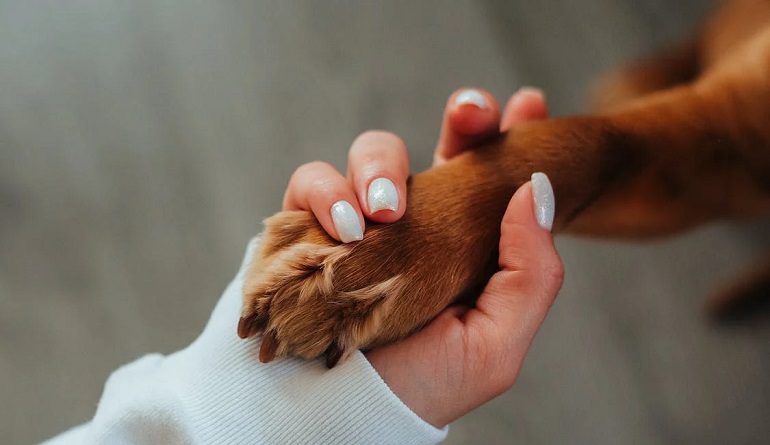
It doesn’t take long for humans to learn that puppies have short attention spans and intermittent bursts of energy. They also have small bladders and bowels. So building a schedule around pee and poo time is essential for a puppy.
It’s also a great way for socializing your family dog with unfamiliar people. Some experts suggest puppies respond best to socializing between three to twelve weeks (pending vaccinations).
Exposure therapy for puppies should include the following:
- Physical contact and touching on ears, paws, tail, belly, and face
- In busy urban centers
- Woodlands, meadows, beaches, rivers, lakes, public parks, coffee shops
- In cars, trucks, and buses (where permissible)
- Around active unfamiliar people and kids
- Other animals, including cats and unfamiliar dogs
- Pet-friendly stores
Most dog owners vow their dogs have a keen sense of time. A schedule is a great way to motivate your dog to meet and greets at the park. Practicing socialization skills is an enjoyable experience for the human family by taking different routes for your new dog.
Dog Classes
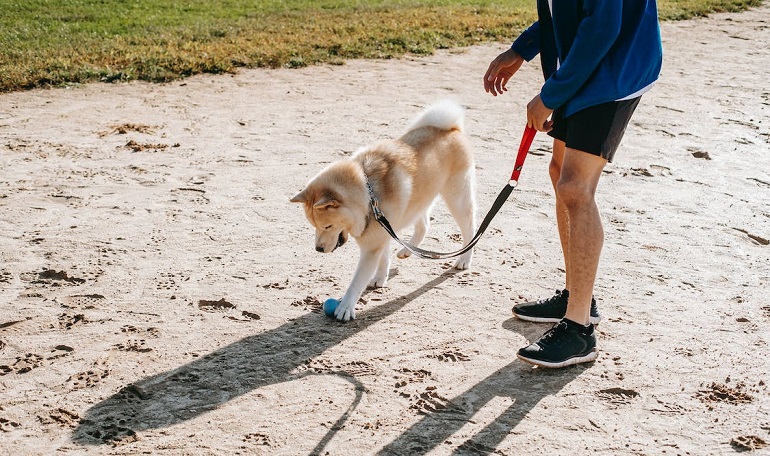
Dog lovers take pet ownership seriously. However, socializing your dog is a huge responsibility. Dog classes or doggie daycare are fantastic opportunities to enjoy rambunctious activities with other pets.
Ask your veterinarian about local groups or puppy kindergarten classes. Dog training classes are also an excellent chance to meet other dogs and learn a few tricks. In addition, dog classes are a great way to learn which good dogs are the best for kids. No two dogs are alike.
Tip: Even the best family dog breeds need great starting tools like dog socializing and basic obedience. Obedience sometimes has a bad connotation. However, it helps most dogs to become the best family dog.
How to Socialize Your Puppy?
You finally brought home that adorable Labrador Puppy, that kissable Bulldog, or a fluffy and rare Pumi dog. Now what?
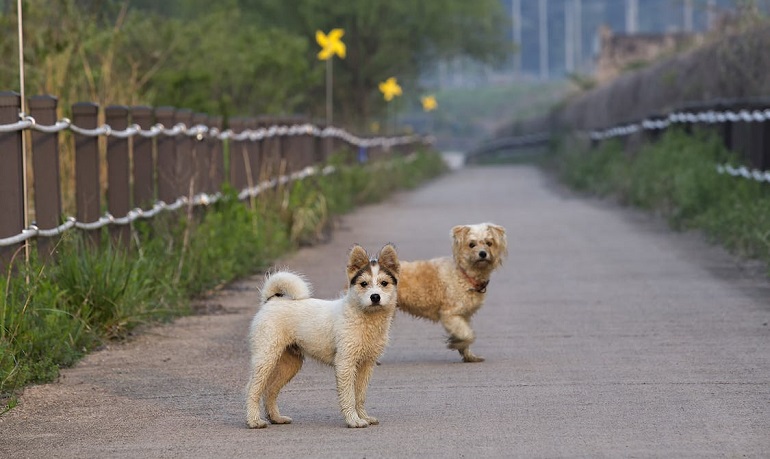
Handling
Handling is a no-brainer. Young puppies (and adult pooches) should be lavished with affection. Touch, snuggle, and caress them frequently. Although children should be a massive part of this, carefully handling your puppy is essential.
Rub their velvety ears, stroke their tails and fur, and tickle their toes. Even open their mouth cavity to get them comfortable. You’ll be in there often enough, pulling icky stuff out.
Sounds
Expose your puppy to sounds but don’t overload their senses. For example, introduce them to appliances, vacuums, boisterous children, television and radio, traffic, banging, and doorbells.
Since puppies are curious, these noises might frighten them initially. Keep the noise to a tolerable level. If your Labrador Retriever puppies will accompany you outdoors, mimic nature sounds.
Food Bowl Exercises
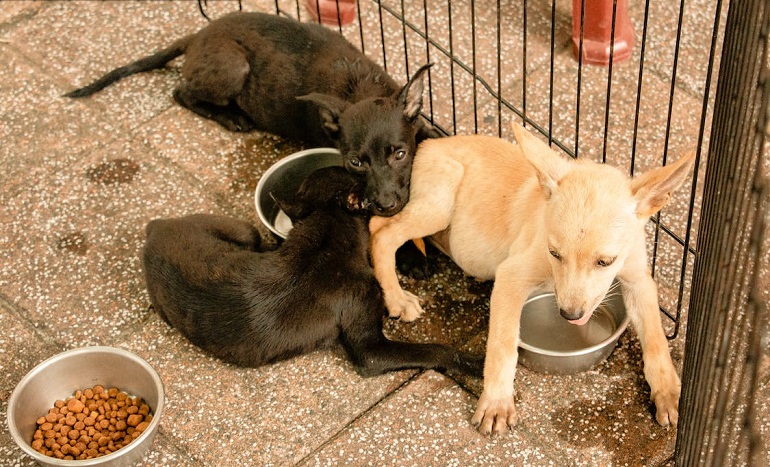
Puppies and adult dogs also need manners. When your puppy is eating, step in and move the bowl as if it were a natural occurrence. This method teaches most dogs that they don’t need to protect their food. Add a tasty reward when you enforce this approaching rule. Repeat a few times. Your puppy will learn quickly.
This is also an excellent time to decide if you want your dog to be a grazer with access to food 24/7 or on scheduled feeding. Many opt for scheduled as it’s healthier and allows you to monitor pooping easily.
Prevent Aggression
Even docile dogs like a Labrador needs help learning the ropes. However, the old-school mentality of dominating a dog is no longer cool. Instead, teach good rewarding behavior and prevent bad behavior before it happens.
Positive reinforcement and calm assertiveness go a long way toward building trust.
How to Socialize Adolescent Dogs?
It’s not that hard, but it does take time. Adolescent dogs are in their prime, and their needs are slightly different. At four to five months, puppies are full of zest and thrive from continued dog socializing.
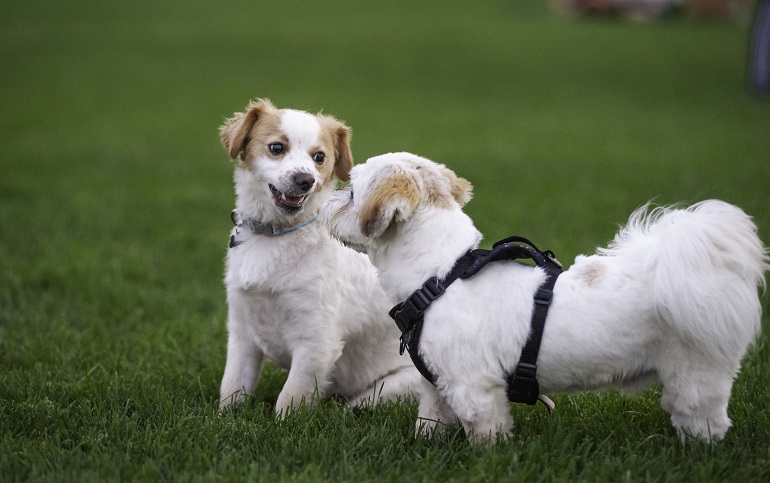
Keep Introducing Your Dog to New People
Don’t limit your dog to the same people. Introduce them to willing strangers on your walk. Ensure your adolescent dog knows basic commands and minds its manners.
Keep Introducing Your Dog to Other Dogs
Your Golden Retriever might be besties with a certain Doberman, but that doesn’t mean it can’t be friends with a Bulldog, Beagle, Schnauzer, or Rumi too. Take your dog on play dates to encounter new sights and different interactions.
Vary Your Walks
Dogs thrive on routine. That doesn’t mean you can’t mix it up and take a different route to socialize your dog. Instead of turning right every morning, go wild and make a left. It’s good for mental and physical stimulation.
Don’t Punish Fear
You can try, but you can’t reason with a dog. Dogs sometimes behave aggressively when they’re scared. That fear can be triggered by a strange dog or at a growth stage when your dog is more sensitive or suffers from separation anxiety.
Some dogs will take the flee or attack approach to unfamiliar objects, dogs, or people. Take the dog out of this state of mind. Ask them to perform a good task, like ‘sit and fetch,’ to divert their attention.
How to Socialize An Adult Dog?
It’s never too late. Even an adult dog can learn acceptable social behavior. Adult dogs have unique needs too, but they may be happy staying home. There are many solutions if you want them to spend time with other dogs.
Introduce Your Dog to Another Adult Dog
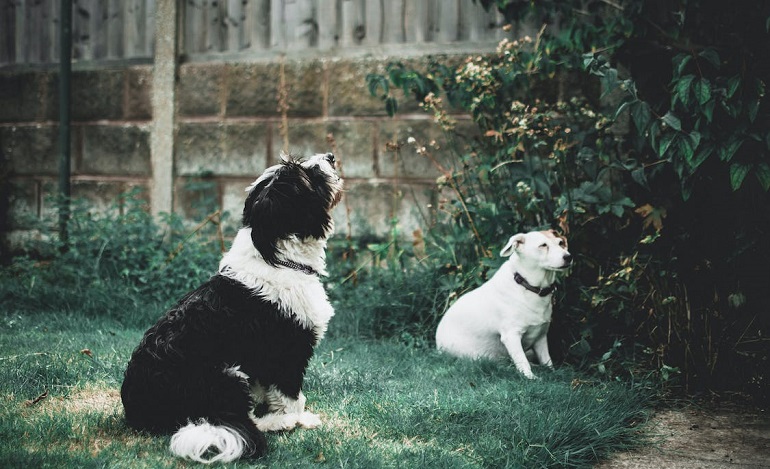
The best method to start socializing your dog is to start slowly. First, introduce your older dog to a dog with a similar temperament or a very gentle, accommodating one. Perhaps a friend or someone you met in the park. At first, walk the dogs on the leash in close proximity until they relax.
Encourage and allow a short sniff. Relax the leash and stay calm. Watch for body language signals before allowing the interaction to continue. Keep the session short, repeat and praise good behavior.
Introduce Your Dog to an Adult Human
Sometimes canines come with baggage. Since we can’t have a clear view into the life of a rescue dog, we have to work with clues.
Dogs send us clear signals. Some dogs are suspicious of men, uniforms, women, children, or other characteristics. Remember, don’t encourage fear but don’t punish it either.
Invite an acquaintance to come and meet the dog for short periods. Ideally, this person understands dogs and likes them. Once the pet is no more nervous, repeat until they’re confident. However, some mature dogs never recover from their past.
Introduce Your Dog to Puppies and Children
Once your dog is confident, introduce them to puppies and children. The principles remain the same. Watch for clues, and ask the kids to stay calm and quiet.
Treat your dog for good behavior and keep the interaction short and sweet. Stay focused on the children and your dog’s movements.
When you bring a puppy into the mix, remain alert. Puppies are nosy, unpredictable, and haven’t read dog training manuals. Your attitude should be calm and assertive. Leash your dog for extra security. Even if things are going well, cut the visit short.
Visit Dog Parks
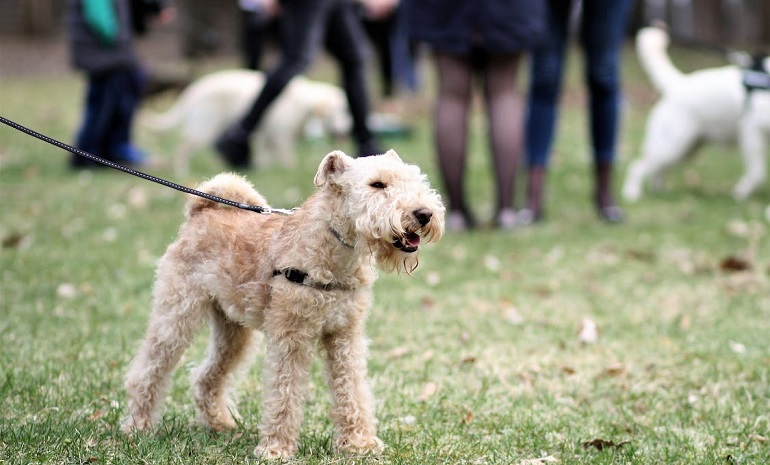
Dog parks are like amusement parks and unleash a dog’s senses. Allowing your dog to experience the scent of other dogs while walking the perimeter is a great introduction.
Mature dogs between one to three might not appreciate a romp with unfamiliar packs. If they don’t want to join or send a snarling message, it’s dog-speak for “back off, buddy.”
Attend Doggy Daycare
Not all dogs need puppy daycare. It’s a great way to burn energy and learn social skills for puppies and other dogs. Many owners discuss concerns and their dog’s old habits with the daycare team.
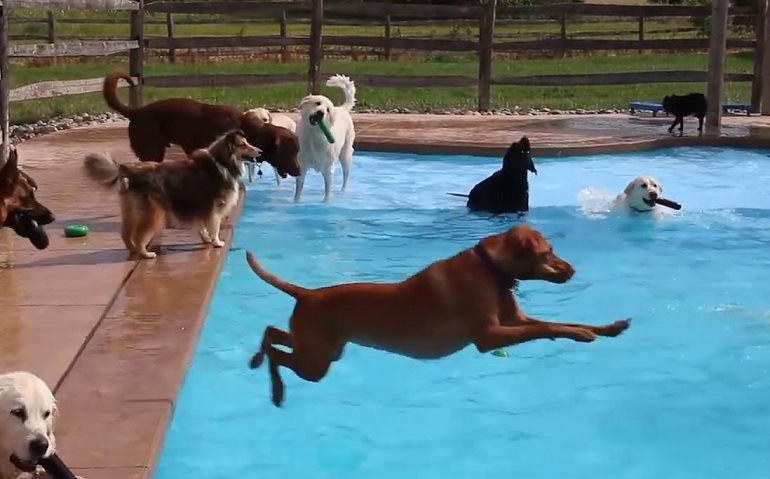
Benefits of Socializing Your Adult Dog
Socialized dogs lead tail-wagging lives. It’s good for them and you. A social butterfly with regular playdates thrives. Best yet, there are other benefits.
You Get Peace of Mind
A socialized dog is predictable around guests, strangers, and other pets. Rescue dogs might have forgotten their manners from a trauma. A refresher course will make them confident.
You Can Grow the Family
Well-socialized dogs accept changes to the family dynamic and welcome new additions affectionately. That includes furry members and those lickable things called babies.
You Create Best Furriends Furrever
Dogs wrote the book on companionship. They enjoy each other. Besides, who will tell all your secrets if they don’t have a fur friend too?
Dog friends also help each other as they age. While an old dog might teach a pup how to master the stairs, a young pup can encourage an older dog into light activities.
You Get to Pawty
Having a dog with social skills means you can host all the parties you want. Your dog will greet your guests (mind the crotch sniff) and keep a keen eye on things, including the sausage rolls.
Parting Words
How to socialize your dog is easy, but it takes effort. A well-socialized puppy grows into a confident pet. They’ll experience less anxiety and create new friends. Reward good behavior with high-value treats.
Happy Socializing!!


